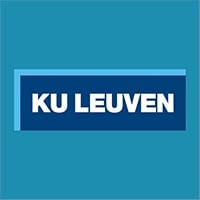PhD Position (100%) ‘Digital ecologies. Remediating landscape transformations’
Position Details (PhD Research Project)
The Department of Architecture (www.architecture.kuleuven.be) is part of the Science and Technology Group at KU Leuven and coordinates the research on (interior) architecture, urban planning and spatial planning at the Faculty of Engineering (Leuven) and the Faculty of Architecture (Brussels and Gent). The Department enjoys an international reputation and currently counts more than 150 (international) PhD students.
Website unit
Project
The ’Digital Ecologies’ project brings together an interest in landscape, ecology and urbanism (supervisors Prof. Bruno Notteboom and Dr. Koenraad Danneels) with research in digital media ecologies (supervisor Prof. Corneel Cannaerts). The transformation of urban and rural landscapes is the result of a diverse field of forces. Landscapes are determined by conscious design and planning interventions, gradual incremental landscape transformations over time, and global geopolitical, economic as well as technological developments and local responses to them. They are also influenced, and by an immaterial system of laws and regulations and by concrete materialities. Technological systems have traditionally played a crucial role in the process of landscape transformation, through the development of mapping and representation methods and as instruments for physical territorial transformation. They also determine the way data is captured and used.
- following the doctoral training program at the Arenberg Doctoral School;
- making a clearly defined contribution to teaching, including thesis guidance, and course assistance;
- publishing your research in academic journals and books, presenting at international seminars and conferences, while aiming to disseminate your work also on non-academic platforms;
- engaging in general services for the Faculty of Architecture (including for example surveillance of exams, assisting the organization of events, etc.);
- organizing activities related to your research topic (e.g. international research meetings, conferences, exhibitions).
Profile
- Has obtained a Master degree in one of the above or related domains, and at least distinguished from other fellow students with excellent academic results and/or recognition of excellence through awards, publications, or other achievements;
- Has distinguished themselves during their academic career or professional life;
- Is able to illustrate writing skills by means of a paper or masters degree thesis.
- Preferably has interdisciplinary experience and sensitivity for topics related to landscape transformation and digital media;
- Meets the requirements to begin the doctoral training and engages to complete a PhD within a broader research consortium;
- Is interested in scientific research and driven to publish and co-publish in relevant international scholarly journals;
- Is a good communicator and enjoys working in a team, including regular presence on campus;
- Is eager to work proactively, with a high level of autonomy and against tight deadlines;
- Is able to show proof of excellent writing and communication in English, or committed to significantly expand language skills. Knowledge of Dutch is an asset;
- Holds on to high ethical standards in terms of research integrity and conduct;
- Is willing to move to Belgium for the duration of the position;
- We particularly encourage candidates from historically underrepresented and marginalized backgrounds, to apply.
Offer
- We offer an appointment as a full-time PhD researcher. You will be appointed for the duration of 1 year, extendable to a maximum of 4 years in total (depending on positive interim evaluations).
- The net amount of a PhD scholarship is equal to 100% of the salary of a member of junior academic staff with the same qualifications, age and family status (net wage scale 43).
- You will be based at the Faculty of Architecture, campus Sint-Lucas Ghent and Brussels. KU Leuven opts for hybrid working, whereby a combination of on campus and working from home is possible.
- Other benefits include: eco vouchers, end of year bonus and holiday pay (for scholarship holders subject to full social security),hospital insurance and reimbursement of commuting costs.
- The starting date of the position is envisioned in the Fall of 2025, or on the earliest alternative date agreed on together.
Interested?
The deadline to submit your application (via the KULeuven online submission module) is September 1st, 2025. Interviews with the shortlisted candidates will be held in the last week of September 2025 in person and/or online. Candidates are expected to start in autumn, by mutual agreement with the supervisors.
KU Leuven strives for an inclusive, respectful and socially safe environment. We embrace diversity among individuals and groups as an asset. Open dialogue and differences in perspective are essential for an ambitious research and educational environment. In our commitment to equal opportunity, we recognize the consequences of historical inequalities. We do not accept any form of discrimination based on, but not limited to, gender identity and expression, sexual orientation, age, ethnic or national background, skin colour, religious and philosophical diversity, neurodivergence, employment disability, health, or socioeconomic status. For questions about accessibility or support offered, we are happy to assist you at this email address.



 KU Leuven
KU Leuven